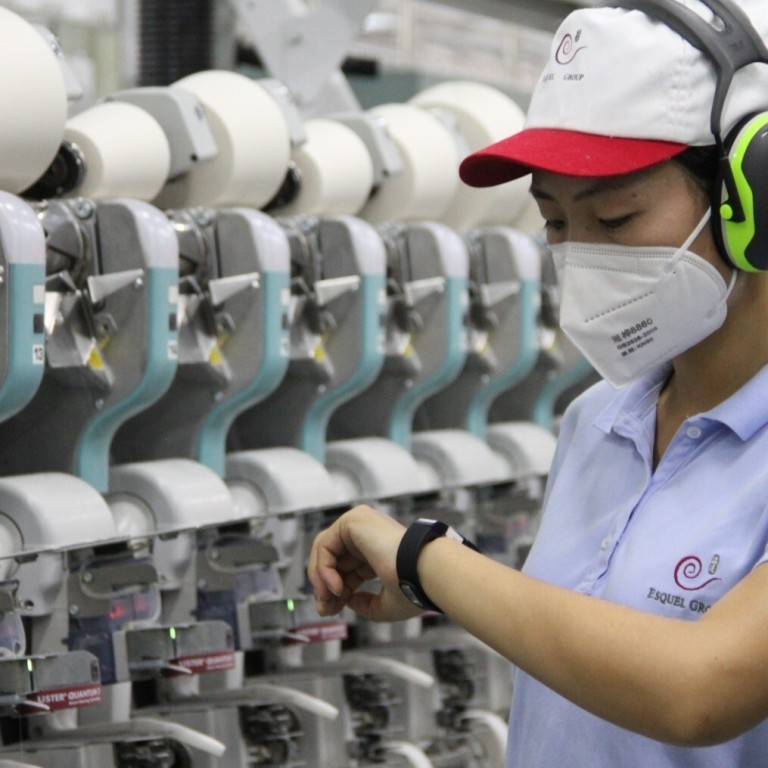
Hong Kong textile giant Esquel, supplier of Nike and Hilfiger, suspends operations at spinning mill as new coronavirus cases spark lockdown of Xinjiang’s capital
- Esquel, one of the world’s largest cotton shirt makers, is closing a spinning mill in Urumqi temporarily as the city in western China goes into lockdown amid a return of coronavirus
- The clothes maker was one of six companies in Xinjiang singled out for potential US in March, after it was accused of using forced labour
Esquel, one of the world’s largest cotton shirt makers, says it will close a mill in Urumqi as the city of 3.5 million people in western China shuts down amid the return of coronavirus.
The Hong Kong-based textile manufacturer, which has achieved US$1.3 billion in revenue and produces more than 100 million garments annually, said it will close its spinning mill in Urumqi from July 17 because of new lockdown measures in the city.
“Due to the lockdown, our hundreds of workers in the Urumqi plant cannot go back to work,” said a spokesperson for Esquel.
Capital of China’s Xinjiang region shuts down as coronavirus returns
Urumqi, the capital of China’s Xinjiang region, went into sudden lockdown on Thursday after confirming one new local Covid-19 patient and three asymptomatic cases.
In a move to cut off the channel of transmission, the city shut down its only subway line on Thursday evening and restricted airport arrivals and departures.
Esquel has three spinning mills, established in the region in 1995, 1998 and 2009, respectively. It also has two cotton ginning mills built in 2003, which separate raw cotton fibre from seed parts.
The company said its other facilities, including the ginning mills in Akesu, are operating as normal.
“At the moment our other spinning mills – one in Changji and one in Turpan are still in operation. But we are closely monitoring the situation and any new direction from the government,” the spokesperson said. “We will continue to maintain all the preventive procedures across factories.”
Esquel to keep its Xinjiang factories open despite US sanctions threat
Esquel has been under the spotlight in recent months as it was one of six companies singled out for potential sanctions in draft legislation unveiled by US lawmakers in March, accusing it of using forced labour in the Xinjiang region of western China. The other five are mainland Chinese companies.
In an interview with South China Morning Post early this month, the company strongly denied the allegation.
Xinjiang offers good strategic positioning for Esquel because the region produces extra long staple cotton, a high-quality material the company uses to make fabric to produce dress shirts for brands worldwide and its own brand, Pye.
At the end of last year, its spinning mills in Xinjiang had a production capacity of 200,000 spindles of cotton, 1 per cent of the 20 million total capacity in the region.
Over the years, the company has invested about US$160 million in the region.

